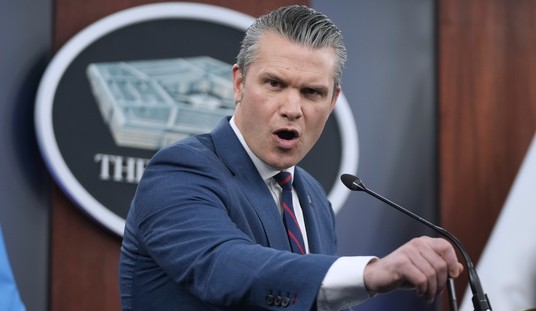For once, I gave you the good news right up front in the headline.
The bad news is that Republican enthusiasm is way down too from its stratospheric 2010 levels.
Today, the Republicans lead on a number of key engagement indicators, though in some cases by smaller margins than four years ago. Currently, 45% of registered voters who plan to support the Republican in their district say they are more enthusiastic about voting than in prior congressional elections; that compares with 37% of those who plan to vote for the Democratic candidate. The GOP had a 13-point enthusiasm advantage at this point in the midterm campaign four years ago (55% to 42%) and the Democrats held a 17-point advantage eight years ago (47% to 30%).
Democrats are down five points from four years ago; the GOP is down 10 points. That’s still good enough for an eight-point lead in enthusiasm, and the number of Republicans who say they’re absolutely certain to vote is statistically the same as it was in 2010, but if you’re looking for reasons to go full eeyore and doubt that the GOP can produce another wave, there you go. As pitiful as Democratic enthusiasm is right now (driven in part by an eight-point drop among Dems when asked if Obama is a factor in their vote this November), the gap between them and Republicans has actually shrunk since the last midterm.
Here’s a graph from Pew’s release today that caught my eye because of the Democratic trendline. I get it, and yet … I don’t get it.

Rationally, both parties should be trending downward from 2010 to 2014 for the simple reason that it doesn’t much matter who controls the Senate in 2015 and 2016. If Democrats hold onto the majority, the Republican-run House will block them. If Republicans retake the Senate, the Democrat-run White House will block Congress. It’s the least important election in years, and obviously much less important than 2010 was. If Democrats had held onto the House that year, Congress would have passed a massive amnesty by now, some form of gun control, and maybe a carbon tax (but probably not). To an informed voter, the Democratic trend here is inexplicable. But that’s just it — lots of voters aren’t voting based on information but on mood. In 2010, they were exhausted from two huge election cycles in a row and glum after the passage of ObamaCare, which liberals disliked because it wasn’t socialist enough and everyone else disliked because it was too socialist. They should have gone to the polls en masse in the name of capitalizing on their advantages, but depressed voters can’t be reasoned with. Especially when they’re poorly informed: I guarantee you that huge chunks of Democrats in this poll think it’s possible that their party might take back the House this fall. It isn’t, but if you didn’t know that, you too might be psyched to try to break the gridlock and give Obama a Democratic Congress for the remainder of his term.
This graph is interesting too, as it’s solid evidence of the establishment/tea party divide:

In Democratic districts, more than half of Democratic voters approve of the incumbent. In Republican districts, fewer than half of Republicans do — fully 12 points less than Democrats. I’m tempted to say that that’s the tea party effect in action: If you assume that 55-60 percent is baseline approval for any incumbent for either party along mostly partisan lines, it may be that centrist Republicans are getting a double whammy of disapproval from Democrats and local grassroots conservatives. You can see further evidence of that when voters are asked if their representative’s spent too long in D.C. The Republican numbers are 10 points higher than the Democratic ones, which jibes with tea partiers’ objections to long-time careerists like Thad Cochran. It’s especially striking too given that so many Republican members of Congress are new to government, having been elected just four years ago. Republican voters should, in theory, have fewer complaints about careerism than Democrats. Instead, the opposite.
But look again at the data, particularly the lines about working well with the other party and caring more about your own party than the good of the country. Those are traditional establishment complaints about tea partiers — and they seem to show up in the data here. Republicans are 10 points less likely to say their congressman works will with the opposition than Democrats are and they’re eight points more likely to say their rep puts his own party above his country. What you’re seeing, I think, is the reverse of what I described above, i.e. some tea-party congressmen getting a double whammy of disapproval from Democrats and centrist Republicans. The GOP divide goes both ways.
Anyway, McCain marveled on Fox last night at Obama’s capacity for self-pity. If you think that’s obnoxious now, imagine how excruciating it’ll be next year if a Republican wave hits this fall after all and he’s stuck dealing with Boehner and McConnell until 2017.








Join the conversation as a VIP Member